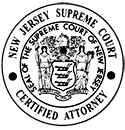5.10I AGENCY
A. Employer/Employee
An employee is a person (or other entity) engaged to perform services for another, the employer, and who is subject to the employer’s control or right to control the physical conduct required to perform such services. In determining whether a person or entity performing services is an employee, rather than an independent contractor or other relation, the following aspects may be considered:
- the extent of control which, by agreement, expressed or implied, the entity for which the services are performed has the right to exercise over the details of the services performed;
- whether one performing such services is engaged in an occupation or business distinct from that of the entity for which services are performed;
- whether the services rendered are usually done under the direction of the employer in the particular locality, or whether such services are usually done by a specialist without such direction;
- the skill required in performing the services;
- whether the entity for which the services are performed supplies the instrumentalities, tools and place of work, or whether the entity performing the services supplies those items;
- the length of time anticipated for the performance of the services;
- the method of payment;
- whether the services to be performed are part of the regular business of the entity for which the services are performed;
- whether the parties believe they are in the relationship of employer and employee;
- whether the entity for which services are to be performed is in business; and
- such other factors as may be reasonably considered in determining whether the entity for which the services are being performed controls, or has the right to control, the entity performing the services.
B. Respondeat Superior
1. When Agency is in Issue:
A principal, such as defendant may act only through natural persons who are its officers, employees or agents . Generally, any officer, employee or other agent of an entity may bind that entity by acts and declarations made while acting within the scope of the authority delegated to the officer, employee, or agent by the principal, or by acts and declarations made within the scope of the duties assigned to the officer, employee or other agent of the principal.
So, if you find that an officer, employee or agent of defendant acted negligently while in the scope of his/her duties or authority, that negligence is as a matter of law charged to the principal, here defendant. If you so find, defendant will be deemed negligent for the wrongdoing to the same extent as the officer, employee or agent.
2. When Agency Is Not an Issue:
Here, it is admitted that defendant was at the relevant time acting as an officer, employee or agent of defendant and that the agent was acting within the scope of his/her agency or employment. A principal or employer is legally responsible for the negligence of an officer, agent, or employee while the officer, agent, or employee acts within the scope of his/her employment.
Therefore, if you find defendant negligent, you must find his/her principal, defendant, negligent to the same extent.



